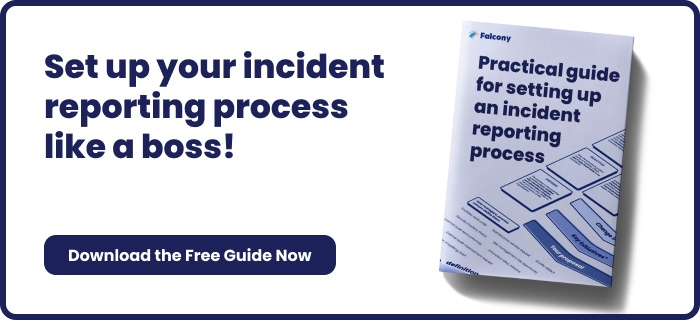Who Owns The Failures In Your Organisation?
Many of us dread failure. However, failures are how we learn and that's why reporting them is crucial. Take incident reporting, for example. While addressing the issue at hand is important, these reports can also help prevent further, more serious incidents from occurring.
What this doesn’t tell us though, is how to encourage learning from mistakes. In this article, we’ll take a look at what this means by understanding who owns failures in your organisation.
The Attribution & Ambiguity Of Responsibility
When things go wrong, people internally attribute responsibility for why this happens. Whether someone attributes this responsibility to external factors or to their own wrongdoing depends on what they perceive to be the most likely reason. If the error could be due to external circumstances, people are more likely to place blame on these. This is part of what is known as the self-serving bias.
Within organisations, many tasks are a collaborative effort. This means that it isn’t always apparent where the fault lies when failures occur. Not only do all the people involved have to be considered, but also any systems or programs used in the process.
Research has shown that surgeons learn more from their own successes or the failure of others than from their own mistakes or the successes of others.
Research has also shown that people learn from their own mistakes more than external factors. What this tells us is that failure and learning can be complex. This theory (that most people learn from their own failures but surgeons don’t) could be due to the ambiguity of responsibility in the surgical environment.
While the surgeon is responsible for the outcome, there are many other factors and risks that come with surgery so a failure isn’t necessarily their fault. Thus, they do not learn as much from them.
Make Failure Safe In Your Organisation
As complex learning from failure can be, there are simple ways you can make failure safe within your organisation to increase lessons learned.
Reduce Ambiguity, Increase Issue Reporting
To directly reduce the ambiguity of responsibility, you need to ensure that employee roles are clear. Clear responsibilities and reporting structures can help reduce the ambiguity of responsibility when it comes to issue reporting.
Employee Involvement is Essential
You need to create a safe space within your organisation and reduce the fear of failure. It’s important that your employees understand that reporting failures will not result in assigning blame.
You can do this by making use of a customisable reporting platform to allow for a certain level of confidentiality and even anonymity. Only certain users will have access to the information and the details of the reporter.
Platforms such as these also help make analysis much easier. Root-cause reviews are recommended for dealing with failure as opposed to disciplinary measures. Strong analysis can help you figure out these root causes more easily.
This way, employees can learn from their failures rather than fear being punished for them.
Final Thoughts
While it isn’t pleasant to fail, it is usually a necessary evil on the path to success. Learning from failure can be a complex thing that can make failure appear quite daunting.
Creating a safe space in which employees are allowed to fail - and take ownership of these failures - can help them to feel more comfortable reporting incidents and learning from them. This in turn will have effects on your organisational culture and should drive more innovation and growth through people willing to take action.
Are you looking for a tool to share best practices and facilitate organisational growth by discussing openly about mistakes and failures? Falcony | Observe ticks all the boxes for low-threshold reporting, real dialogue, case management, security and more.
We are building the world's first operational involvement platform. Our mission is to make the process of finding, sharing, fixing and learning from issues and observations as easy as thinking about them and as rewarding as being remembered for them.
By doing this, we are making work more meaningful for all parties involved.
More information at falcony.io.

Related posts
Why Failures Are Often Systemic In Nature
Failures are an inescapable part of life. Many institutions have fostered a culture that sees...
What's The Value Of Failure?
Reporting failures in many organisations is something people would most often rather avoid. Nobody...
9 Reasons For Failure (Regardless Of Industry Or Department)
Failures are an inevitable part of running a business, organisation, facility, or any other entity....





